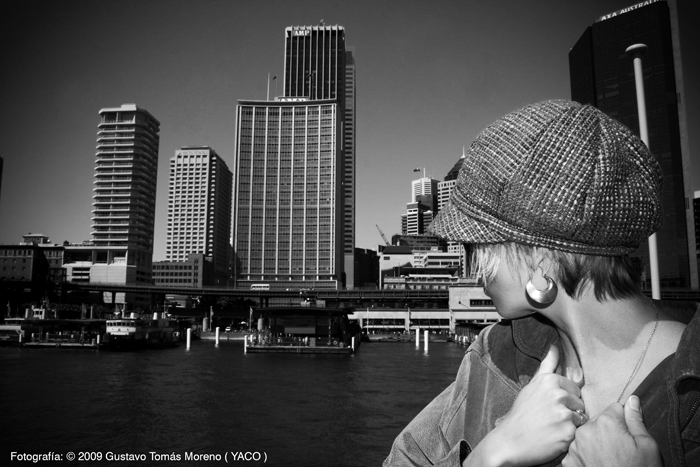What makes more sense?
1. That God selected ONE species to be his “chosen” species, abandoning all His other creations to nothingness.
OR
2. That God values ALL of his creations. The idea that humans are the only creations with souls, is a narrative created by humans not God.
What makes more sense?
1. That God selected ONE group of people to be His “chosen people, to help them conquer other groups of people (as long as they obeyed Him) and to punish all other people in the world who strive to discover Him and His will.
OR
2. That this group of people crowned themselves God’s chosen people, and that in times where these people won battles they believed it was because of their obedience to God, while in times of trouble their scapegoat was to disobedience to God.
What makes more sense?
1. That the world was created in 6 days, 6,000 years ago, by a God who is an entity separate from the world, that watches the world from afar. And yet is omniscient, omnipotent, and omnipresent?
OR
2. That some component of the universe has always existed, and this has be personified as God. That the universe is, like the breath of God, currently expanding, and one day it will compress back to a single quantum atom at which time the process of expansion will start again. That the process of creation, destruction and recreation never ends, hence presenting the beautiful process and nature of “God”. A never-ending process of yin and yang, good and evil, diametrical opposites that allow us, (and God) to know the other.
What makes more sense?
1. That carbon and other dating methods are inaccurate by millions/billions of years, that evolution is incorrect, and that the 30,000-year history of the aborigines is a complete fabrication.
OR
2. That the biblical account of Genesis is, like many other (very similar) creation stories about human beings that lived between 5-2000 years ago, a mythological symbolic account that explained the origins of life in a non-literal sense.
What makes more sense?
1. That God selected one point in time, that is, 2000 years ago, to impregnate a human woman to bare His one son, who is also an incarnation of Himself, in order to save humanity and provide an opportunity for people born lucky enough to hear this story, to have a relationship with Him. That this path to heaven does not come through how people live their lives, but they come from His “grace” that allows “anyone who believes in Him” – and the biblically narratated account of His divine Son dying on a cross and physically rising again for my, or your, sin, can have a relationship with God and go to heaven when they die.
OR
2. That God would love ALL the human (and non-human) beings He created and continues and will always continue to create over billions and zillions of years – before our universe’s beginning, and after it will end. That each group of people, through myriad circumstances, have developed a unique relationship with “Him” (referring to a personification of what is not human nor of any gender), discovering different aspects of the macrocosmic, omnipotent, omnipresent entity to which we are all a part of.
What makes more sense?
1. That all the Mayans and Incas in South America, the Aborigines in Australia, the Chinese, Japanese, Indians – all the people that were born into other cultures and see the world through a different lens that they have been brought up in, people who believe they have a relashionship with God – are actually wrong and are worshiping false gods, and hence will go to hell unless they repent and abandon the beliefs of their ancestors, and believe in the Christian God and Jesus Christ His son.
OR
2. That none of these religions have discovered the whole of who (or what) “God” is?
Is it possible that by exploring each tradition in it’s historical context, alongside the ongoing scientific and astronomical discoveries, that we can together continue to uncover more about the nature of the powers driving the universe?
What makes more sense?
1. That one simple story behind every incredible complexity that this world has to offer, was magically captured in One Holy Book, which was gathered, translated and interpreted without any human political motivations entering the decision process.
OR
2. That all Holy Books contain historical complexities surrounding the “truth”, “myth”, “Midrash”, myriad political intentions, and mis-translations, and that they as much as one strives to discover the “Truth” in it, there will always be different interpretations, and mis-interpretations of passages when taken outside their original language and context.
What makes more sense?
1. That God created such a narrative of the battle of good vs evil, of creation 6000 years ago, of one saviour in one part of the world 2000 years ago – all so that He can still continue to choose who He wants to hear this narrative, who He will reveal Himself to and have a relationship with…
OR
2. That man made up this narrative over thousands of years of a developing human consciousness, evolving moralities, political motivations, desires to know where we came from, to feel special, to deal with the inequalities and injustices in life, to provide hope of justice and eternal life, and to provide a grand-narrative of purpose and rid sense of emptiness and meaningless.
What makes more sense?
1. That Jesus is a “liar, lunatic, or Lord.”
OR
2. That the Bible contains some flaws.
There are many alternative scenarios than Jesus being a liar, a lunatic, or Lord. This manipulative argument is based on the presumption that everything in the Bible is literally true – a presumption to which any thinking person can see is an biased argument. Even if you allow for evidence from within this paradigm, does the bible claim not to contain mythos? Does it claim to contain no error? Even if God inspired the words, through translations and interpretations you can be guaranteed there are errors (and in other writings I have listed but a few of the many).
Think about it – couldn’t the virgin birth and rising from dead have a deep symbolic meaning without literally being true. Could these parts have been added when, after Jesus’ death his teachings were being transformed into a Jewish social revolution and then a religion taken to the Roman pagans? The fact that many pagan gods were born of a virgin died and rose from the dead, for example Ishtar from who Easter is based upon, infers that this scenario is a highly reasonable one to consider. Could Jesus be a prophet, a fantastic example of how we can know God? Could he be a mythical legend inspired by a number of heroic social and spiritual revolutionaries at the time? Maybe.
…
What makes more sense?
1. That God used various men to write, edit, collate, translate and interpret the Bible – exactly the way that He wanted it to be done – bridging the language and cultural barriers as if everyone understands everything the way he intended.
OR
2. That men wrote the books of the Bible, feeling inspired by God but remaining human and hence fallible. In the version of events and “facts” that they had access to, open to political interference, additions and manipulation, open to errors in translation and open to much debate over various ways to interpret the words in different circumstances that the rader finds themselves?
Debates over the divinity of Jesus, the Trinity… and existence of so many contradicting divisions of Christianity demonstrates the openness for such a human filtering process.
Jesus was an incarnation of God himself, and simultameously God’s one and only Son, and that a belief in this God-Man’s special birth, life’s teachings, humiliating and horrifying death, miraculous resurrection and incomprehensible ascension in to the earth’s atmosphere (to where-ver Heaven supposedly is located in the sky)
What makes more sense?
1. That one groups are the rare lucky people that God has chosen to be provided with the particular circumstances that lead us to the “right’ religion – the “right’ relationship with God through the belief in the “right” interpretation of history and historical writings.
OR
2. That humans of a particular culture and particular period made up the exclusiveness side of this story, that writings were manipulated so that the powerful could control the masses.
Might all religions record the experiences of various people with the great divine power, not with “other fake gods”? Is it possible that we do not know everything there is to know about God? Doesn’t God have a right to interact with different people however he wants to? Is it possible that by saying that God chose us and not people in Australia 500-years ago, that we are the ones playing God? Who are we to say what God is thinking, planning and choosing? Who are we to interpret a book out of their written context, and applying it to different cultures within this globalised society where such an attitude can have a rippling violent effect? Might it be better to let God be God, and us humans be humans? Might we be better to keep open toward all the humans of the world and seek to discover everything we can about the historical relationships between non-Western humans and God?
Does it really make sense that people in other cultures, whose circumstances have led them to belief Jesus was a human and not a God-incarnate – are sent to hell by no fault of their own? Why – if there is one God, and people in other cultures, and people who have lived for thousands of years seeking God within these cultures -would God reject them and accord that only one culture of people in one period of time, will have the correct story.
What makes more sense?
1. That life is a battle between good and evil, that people who choose to do evil will be punished in hell – an afterlife of eternal suffering.
OR
2. That those who do good in the world largely to so due to their life experiences, and that whots who do “evil” do so as a consequence of theirs?
Those who steal do so because they can’t afford to eat, or maybe because of an addiction to a drug they have developed due to a parent dying when they are young, or maybe just because they have been brought up with the overtly materialistic dreams that they hence believe will make them happy, even if it means harming other sto get there. Those who murder often do so because their psychy is completely fucked up by whatever circumstances they have withstood in their lifetime. Our definition of good, bad, and justice, and our knowledge about how to move toward peace, is an ever-evolving process. As our knowledge grows it may not mean wemove toward it however could it be structural circumstances that lead this to be?
…
In summary, think about these questions:
- Why would God create populations of people for thousands of years before Jesus, on unreachable areas of the world, eg the Australian Aborigines, only to send them to hell?
- Is it more likely that God chose one group of people, or that they crowned this title to themselves?
- Don’t you think that God would be powerful enough to love us without having to come to earth in human form so that he could forgive us? If you are all powerful, can’t you just forgive without people pleading for that forgiveness? Can’t you be happy with your achievements without needing someone else’s applaud?
- What is more likely: God incarnated Himself as a human ONCE in the whole history of the universe, or that God incarnates Himself in each and every one of us, and in every life orm, every cell and every quantum atom that makes up our universe?
- What is more likely: Jesus was a God-incarnation who three days after laying dead, rose back to life, and ascended into the earth’s atmosphere to wherever heaven exists up there; or that the supernatural parts of this story are reflections of the Roman pagan influence, additions to the story of Jesus that occurred in between Jesus’ death and the writings of the gospels?
Think about the complexities that surround us: the nature of life, humanity, consciousness, the connections between us and the micro and macro world that surrounds us… how can we uncover more about how we got to where we are, why, and where we are going from here?
Via a collective exploration it would seem that we might be able to get closer to knowing “God”, discovering more about “His” nature (taking “him” as a personification for the laws of nature), learning about how He created us, what He wants for us to do with this understanding and with our live (which I think is the same as Him discovering these things about Himself).
…
If not an absolute and elitist Christian God, then what???
To answer this question I think it is useful to return to the question: Who, or what is “God”??? Click here for some blog entries on this topic.
This process of questioning isn’t easy. It not only takes a lot of time. It can involve a roller coaster of emotions. It can cause conflict within yourself, as you question the roots of how you understand the world. It can cause conflict within social groups, even between you and family members. For me it was all these things. And so here, in hope of easing the pain of anyone else that might be facing the same dilemma, I documented my question and answers, and I offer it to you in this book I wrote in 2007-8: Journey of an Intuitive Christian


 Have you noticed the reoccurring pattern of almost hypocritical contradictions contained in my most recent entries? There seems to be a battle going on inside my mind:
Have you noticed the reoccurring pattern of almost hypocritical contradictions contained in my most recent entries? There seems to be a battle going on inside my mind:

